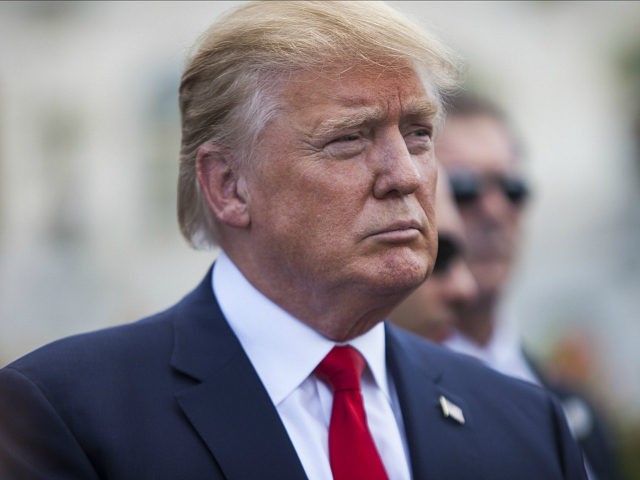Pakistan this week welcomed U.S. President Donald Trump’s decision to make political reconciliation between the Afghan Taliban and Kabul the primary goal of America’s strategy to end the more than 17-year-old war in Afghanistan.
Islamabad issued a statement Monday in response to a letter Trump sent to Pakistani Prime Minister Imran Khan requesting “assistance and facilitation in achieving a negotiated settlement of the Afghan war.”
Khaama Press (KP) quoted Pakistan’s ministry of foreign affairs saying:
US President Donald Trump, in his letter addressed to Prime Minister Imran Khan, has stated that his most important regional priority was achieving a negotiated settlement of the Afghan war. In this regard, he has sought Pakistan’s support and facilitation … He has emphasized that Pakistan and USA should explore opportunities to work together and renew partnership.
Since Pakistan has always advocated a political settlement to end [the] war in Afghanistan, [the] US decision is welcomed. Pakistan reiterates its commitment to play a facilitation role in good faith. Peace and stability in Afghanistan remains a shared responsibility.
Islamabad’s response to Trump’s letter came a day before Zalmay Khalilzad, Trump’s special envoy charged with finding a negotiated end to the Afghan war, arrived in Islamabad on Tuesday for meetings with the political and military leadership about convincing the Afghan Taliban to join the peace talks, Pakistan’s Dawn newspaper reported.
Via Twitter, Mohammad Faisal, a spokesperson for Pakistan’s foreign office, said, “Khalilzad called on Foreign Minister [FM] Shah Mahmood Qureshi and reiterated US President Donald Trump’s desire to seek Pakistan’s cooperation for peace and stability in Afghanistan.”
“The FM assured the US side of Pakistan’s steadfast support for a negotiated settlement in war-torn Afghanistan,” Faisal added.
US Special Rep Amb Zalmay Khalilzad @US4AfghanPeace called on the FM. Amb Khalizad reiterated President Trump's desire to seek Pakistan's cooperation for peace and stability in #Afghanistan. The FM assured the US side of Pakistan's steadfast support for a negotiated settlement. pic.twitter.com/XIij5pZgG3
— Dr Mohammad Faisal (@ForeignOfficePk) December 4, 2018
Pentagon officials have long accused Islamabad of having clout over the Afghan Taliban and granting sanctuary to the terrorist group as it orchestrates operations to kill and maim American troops from Pakistani soil.
The Trump administration has suspended hundreds of millions in aid to Islamabad over its reluctance to take decisive action against the Afghan Taliban and its Haqqani Network allies.
In the letter, Trump “recognizes that Pakistan has the ability to deny the Taliban sanctuary on its territory. The letter also makes clear that Pakistan’s assistance with the Afghan peace process is fundamental to building an enduring U.S.-Pakistan partnership,” an unnamed White House official told Reuters, confirming the existence of the correspondence.
The letter came days after the U.S. president accused Pakistan of “doing nothing” to combat terrorist groups, triggering a spat with PM Khan.
Trump acknowledged in the letter that the war had cost both the United States and Pakistan.
President Trump has sought “Pakistan’s full support” for the U.S.-led peace process in Afghanistan and for his special envoy’s trip to the region, an unnamed spokesperson for the White House National Security Council (NSC) told Dawn.
Khalilzad is also expected to travel to Afghanistan, Russia, Uzbekistan, Turkmenistan, Belgium, the United Arab Emirates, and Qatar as part of the Trump administration’s intensified efforts to find a peaceful end to the war in Afghanistan, which has been raging since October 2001.
Dawn noted:
Khalilzad has a prickly relationship with Pakistan, having often accused Islamabad of fomenting violence in Afghanistan by supporting the Taliban.
Following Khalilzad’s appointment in September as Trump administration’s new envoy for reconciliation in Afghanistan, Foreign Minister Shah Mahmood Qureshi had urged him to be more sensitive to Pakistani opinion than he has been as a private citizen.
U.S. Secretary of Defense Jim Mattis urged the international community to join the United States in pushing for peace in Afghanistan.
“In Afghanistan, it’s gone on now it’s approaching 40 years; 40 years is enough, and it’s time for everyone to get on board, support the United Nations, support [Indian] Prime Minister [Narendra] Modi, support [Afghan] President [Ashraf] Ghani and all those who are trying to maintain peace and make for a better world here. So, we are on that track,” Mattis told reporters Monday.
The U.S. has maintained a military presence in Afghanistan since October 2001, but Afghanistan has been at war since the late 1970s when American-backed local fighters pushed the Soviet Union out of the country.

COMMENTS
Please let us know if you're having issues with commenting.